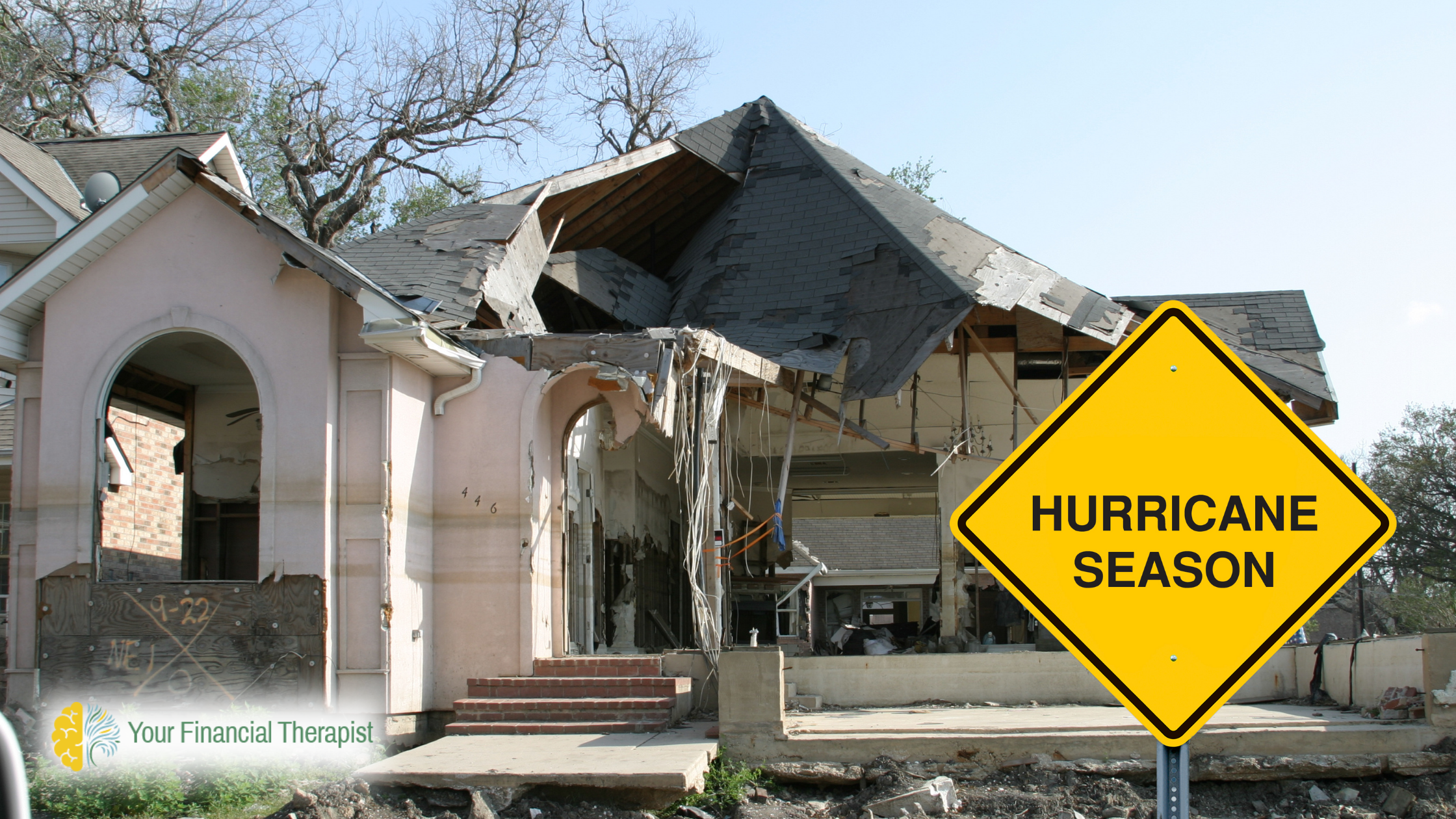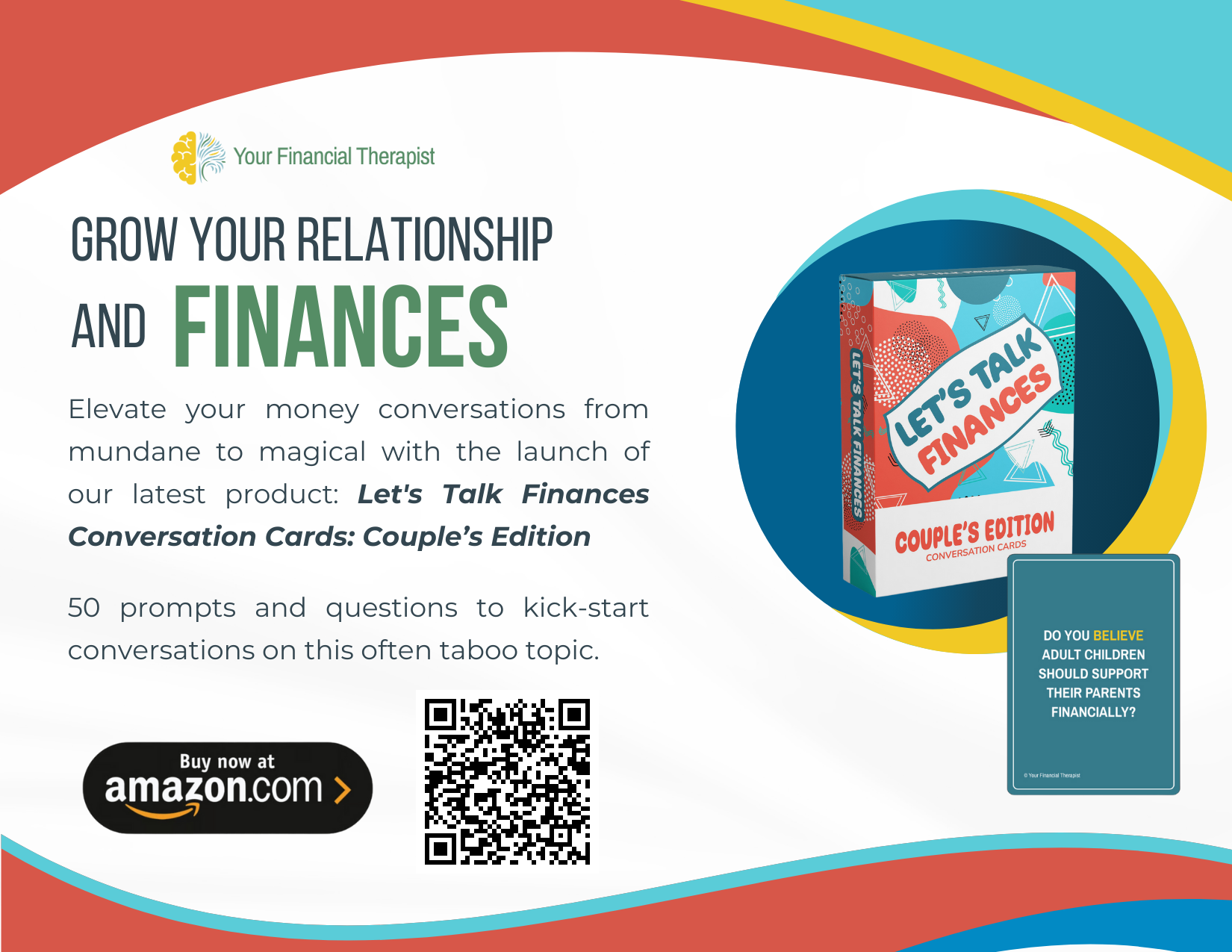Navigating Financial Storms: Tips for Managing Your Money After a Hurricane

Living in Florida, I have seen firsthand what a hurricane can do to your house and your heart. And after this recent storm and with an increased threat of even more, I understand why one might be blown away by the overwhelming emotions when an unexpected crisis disrupted your life – especially with money.
In these moments, you want to breathe and, yes, a little panic or confusion is natural, but I will offer some tips that may help you have a small degree of control over your emergency spending. You are not alone in this, either.

1. Take Your Time Before Acting
It’s very tempting, the moment the storm clears, to jump into action; yet at other times it’s far more important to step back and breathe. Take a short walk, listen to a song that quiets your mind, or just sit for a minute. When we give ourselves time to calm down, we’re able to make clearer, more thoughtful financial decisions.

2. Prioritize What’s Most Important
After chaos, it may be hard to decide where to start. Start off with the basics—consider your safety, shelter, and primary needs. Write down exactly what you need now, and make a rough estimate of the expenses. You can see your way to reducing financial stress and will avoid unnecessary spending.

3. Track Expenditure Without Stress
Not perfect budgeting is needed now, but this tracking will help you in many other ways, such as keeping a record of all your expenses on your phone or even snapping pictures of receipts. Such a simple record will be useful for you and your future self. Not perfect but making yourself aware of where the money is headed is all about it.

4. Communicate with Your Loved Ones
In a time of crisis, usually, there is no better time than now to open up and share each other what you may be feeling. Doing so with the request for help and explaining your needs may not easily come, but loved ones also stand at your side. Letting out your struggles about your emotions or your financial concerns will create stronger bond relationships and let you hold through this together.

5. Be Kind to Yourself
Things will not always go as planned, and that’s just the way it is. Allow yourself to feel everything about this experience-from the fear and frustration to the pure grief. You’re doing the best you can, and that’s more than enough. Just remember, the storm will pass, and you will regain control over your finances and your life.

You are not the storm. Just like this storm will pass, so do these financial troubles you have at the moment. Keep going.
Know you do not have to do it alone. Whether it is support from loved ones, or seeking some guidance from professionals, resources abound that will enable you to rebuild with confidence.
It must be noted that financial recovery does not only entail the management of numbers but also how to manage one’s emotions or expectations with respect to such a situation. There is uncertainty during the hurricane aftermath, which causes anxiety around money. But taking small, thoughtful actions-finding a way to track your expenses that does not feel overwhelming, communicating your needs clearly to loved ones, focusing on what matters to you-will result in a renewed sense of control over your life. This is not about perfection; this is about progress.
Take care of yourself—every way except financially. Recovery is not just a dollar-and-cents deal; it’s a way in which you can nurse your well-being back to health so you can move ahead much stronger. You will come through this, and your sense of financial stability will return, just like the calm after the storm.
Warm regards,
Erika Wasserman
Certified Financial Therapist
Your Financial Therapist

